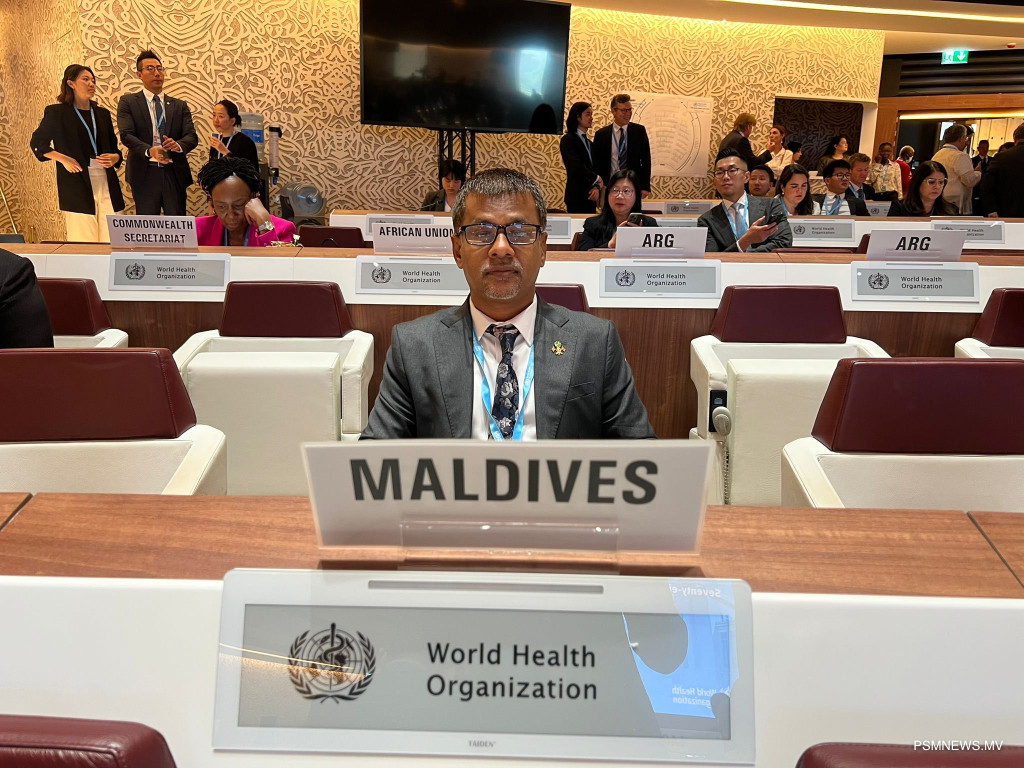
Minister of Health Abdulla Nazim Ibrahim has urged sweeping reforms to strengthen healthcare across all inhabited islands, arguing that decentralisation is essential to addressing the country's evolving health challenges. Speaking at the 78th World Health Assembly (WHA78), Minister Nazim pointed to the increasing burden of non-communicable diseases (NCDs) and the growing health risks posed by climate change.
Held in Geneva, Switzerland, from 19 to 27 May, the assembly brings together senior representatives from World Health Organization (WHO) member states to examine global health priorities, ranging from pandemic preparedness to antimicrobial resistance and sustainable health financing. This year's discussions centre on the theme "One World for Health".
The Maldives has made notable strides in maternal and child health, Minister Nazim noted at the meeting, with outcomes that rival those of developed nations. Yet, he warned that new challenges, rising chronic illnesses and the impact of climate change necessitate a more resilient and adaptable healthcare system. The country's vast network of islands, he added, makes equitable access to treatment and medical resources a logistical hurdle that must be addressed at the local level.
To meet these demands, the government is set to expand Aasandha, the universal health coverage system, reinforcing its role in protecting public health, according to the minister. He also reaffirmed the administration's commitment to strengthening tobacco control measures, an effort designed to shield future generations from harmful exposure.
The assembly's theme, he noted, holds particular significance for small island developing states like the Maldives, where geographical vulnerabilities heighten health risks. He highlighted the Pandemic Treaty, adopted at this year's session, as a demonstration of broader international cooperation in safeguarding public health.
Negotiated over three years, the Pandemic Agreement was formally adopted on 20 May. It is only the second legally binding treaty under the WHO's constitution, following the Framework Convention on Tobacco Control.
